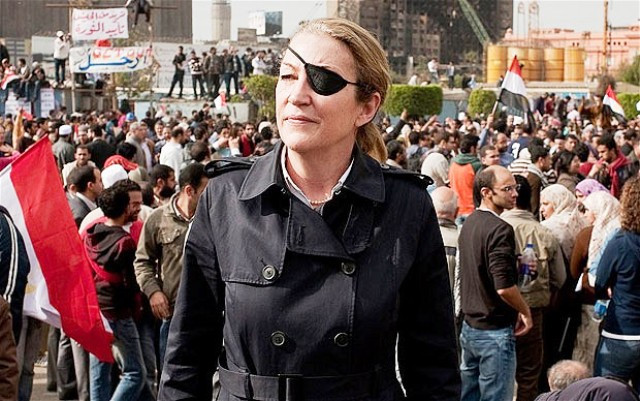On Wednesday, another journalist was killed while covering the Syrian military operation in the city of Homs. Marie Colvin’s last broadcast, aired just hours before she died, was about the painful death of a child during the Siege of Homs.
[[http://www.youtube.com/watch?v=nww7rRSq0x8&skipcontrinter=1]]
When CNN correspondent Anderson Cooper voiced some general concerns about the media showing gruesome images from conflict zones, Colvin replied by sharing her lifelong philosophy: communicating pain and suffering of the distanced “others” to the world in order to mobilise peace. The idea becomes even more significant in the context of international conflicts involving two or more nation states.
Though her death is making headlines across the world, only a few Pakistani news sources have reported it so far. I’m not surprised - Colvin was an American journalist working for The Sunday Times. While I’m aware of the common anti-American sentiment in Pakistan, I do believe that the various US-led military operations are not what most Americans want. The Vietnam war is said to have changed the realm of conflict reporting as journalists were provided unlimited access to war zones during this time. Reports of these correspondents showinghorrific realities of the battlefield dramatically changed the opinions of US citizens who later voted against the continuation of the US operation. What triggered this change was the human cost revealed through the coverage of death and suffering during wars.
Colvin pursued what the British war reporter Martin Bell called the ‘journalism of attachment’, which is not just about knowing but also about caring. It broadens the scope of reporting beyond a mere objective position, if there is any objective position in journalism that is. Pain is a subjective reality and communicating the scenes of suffering challenge the notions that legitimise war. It does not advocate whether a conflict is right or wrong, but communicates the fact that if it has the potential to cause bereavement to the innocent, it must stop.
Syria is not being invaded by a foreign state. What then justified Colvin’s presence in Homs till the very end was her self-proclaimed war against human suffering in conflict zones, articulating the idea that there is more to the world than ‘us’ against ‘them’.
I don’t care whether Colvin was an American. What matters to me is the fact that we both support journalism of attachment in which humanity comes before nationality, a kind of reporting that has to be acknowledged despite the increasingly negative sentiments around media and journalism today.
Marie Colvin's journalism of attachment
Colvin's philosophy was to communicate pain and suffering of distanced “others” in order to mobilise peace.



COMMENTS
Comments are moderated and generally will be posted if they are on-topic and not abusive.
For more information, please see our Comments FAQ